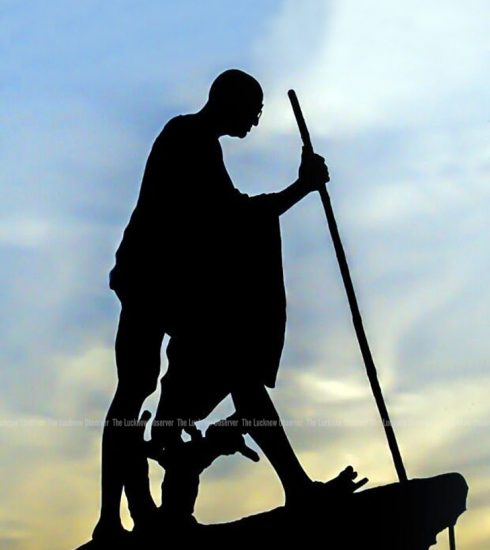Feminism
Myth, Perception and Reality
“Behind every successful woman, is a long line of people who tried to hold her back.” -Anonymous
In the 21st century, there exists a global community thriving on the concept of similar goals, ambitions, sufferings and subjugations. As a result, a number of global movements have been recognised of late, and Feminism is one such strong movement. The Oxford Dictionary defines Feminism as the advocacy of women’s rights based on the ground of the equality of the sexes. The word has its origins from the French word féminisme, which was first used as early in 19th century. However, the issue of equal rights for women and men had first become prominent during the American and French revolutions in the late 18th century. Initially, the movement gathered support because of strong individual voices such as Emmeline Pankhurst of the USA, Wilhelmina Drucker of the Netherlands, and Louise Weiss of France. Today, feminist organisations aim at empowering each individual who seeks help, so that they can all raise their voices, together, against gender discrimination.
In India, progressive movements against oppression of women were not started by women themselves, but by men of foreign lands, who were terrified to see the poor condition of Indian women. The neglect of women, as well as adherence to old traditions and customs had suffocated women for a long time. Women had no access to basic amenities like education and healthcare, and lacked the will to stand against oppression. The most important achievements that these pioneers accomplished were promoting and establishing woman’s education, initiating widow remarriage, and abolishing social injustices like sati, child marriage, and disfigurement of widows. They had a simple ideology behind their works- society will never progress with only the progress of men, but rather with the progress of both the sexes- something that feminist groups are striving to achieve to this day. Although women have been oppressed all over the world, the condition in India is quite unique. On one hand, the ancients worshipped Goddesses, and women signified power, wealth, and knowledge. However, somewhere down the line, the complete dominance of men brought the downfall of women from such a high status in the society.
In the last two decade alone, the presence of feminist outfits have been felt far and white. There have been many powerful demonstrations across the globe, and a number of powerful speeches by feminists have been heard and appreciated even in bodies such as the United Nations. The rise of feminism has had its share of controversies. There have been anti-feminist movements, as early as the start of feminist movements, which debated that the issues of patriarchy and disadvantages faced by women are blown out of proportions by individuals who did it for their own personal ambitions. Some anti-feminists feel that feminism will corrupt the traditional norms that have existed since times immemorial, and will thus disturb the ‘natural order’. For example, in a typical family, a father is expected to be the bread-earner whereas a mother is supposed to tender to the needs of the house. Moreover, the way religious texts have been interpreted has also made the general public more inclined towards a male dominant society than a gender neutral society. For example, in Christianity, most of the leadership roles have been restricted to males. The highest position that a female can serve in a Roman Catholic or an Orthodox Church is that of an abbess, i.e. the head nun, whereas posts of priests or deacons, pope patriarch and bishop are reserved for males. Islam guarantees its followers spiritual equality between women and men. However, Islam also believes in gender specific roles, and states that the sphere of operation for a woman is her home whereas a man’s corresponding sphere is the outside world. Hinduism offers a very contrasting view on the role of women. Texts such as the Rigveda declares the feminine energy as the essence of the universe, the one who creates all matter and consciousness, whereas the Smritis such as Manusmriti asserts that “as a girl, she should obey and seek protection of her father, as a young woman her husband, and as a widow her son”.
With feminism giving women more freedom to accomplish their own dreams, traditionalists are of the view that this would disrupt the harmony within families. What they fail to realise, is that feminist movements do not seek a special status for women, what they want is to level the playing field for both men and women. For example, some men argue that paid maternity leave is an undue advantage for their female colleagues at work. What they fail to realize is that a woman is not medically fit enough to continue work after giving birth, as she has to deal with the physiological changes that her body has been subjected to post pregnancy, as well as tender to the new born baby. While Feminist groups do fight for women rights, an important aspect of their war cry is ‘equal treatment of both the sexes’, which literally translates to treating both the sexes on equal terms. This doesn’t mean that the status of men has to be brought down, but on the contrary, it is the status of women that requires to be uplifted. Feminists want to give wings to a woman’s dreams and aspirations, and on the same time they want men to become more sensitive, and more emotionally active in the society. So much so that, there is a whole faction of feminists dealing with sensitising men to their emotions such as fear and sadness, even encouraging teenagers and young men to cry if the need be, so that men can be more sensitive and not turn into a living mass of flesh with coldness within. Thanks to education and more open communication between the opposite sexes in recent times, a large number of men have also come in support of the Feminist movements, as they have come to understand the difficulties faced by women, both physically and mentally, and have also started expressing the hardships that they have faced as a result of the strict gender specific rules of the society.
Having been present for more than two centuries, Feminist movements have gone through a few changes. Today, a handful of radical groups have come up within the community. Their demands are not similar to Feminism’s principle of equality between the sexes. They believe that men, throughout the ages, have purposefully held women as a hostage in their homes, because of the fear that women are superior to them. These groups, popularly and derogatively termed Feminazis, believe in the superiority of women over men. Due to this change of attitude among some Feminist social workers, the movement has recently received a lot of flak from critics, who argue that this would ultimately lead to an imbalance of the genders and that equality cannot be restored by such radical and far left philosophies.
Amongst all this commotion, the actual principles of Feminism have often been obscured. However, throughout the years, it has been individuals who have put the movement on the correct course. Oprah Winfrey is one such example. The unequal pay she received at the start of her career motivated her to start her own television show, and now she sits atop her own empire in the world of broadcasting. She has since developed the Oprah Winfrey Leadership Academy for Girls in South Africa, and was awarded the Presidential Medal of Freedom in 2013. Her words, “I never did consider or call myself a feminist, but I don’t think you can really be a woman in this world and not be” has gathered praise from one and all. Angelina Jolie, apart from her successful career in Hollywood, has worked extensively as a philanthropist, and UN diplomat. Her courage to share the story of her double mastectomy, has encouraged other women to share their own stories and concerns and act on their own for their healthcare. Malala Yousafzai, the courageous seventeen year old girl from Pakistan rose to fame because of her relentless efforts to educate women in her region in spite of death threats, and has received a Nobel Peace Prize for the same. And who can forget Emma Watson’s inspirational speech in front of the United Nations launching a new initiative for gender equality, the #HeForShe movement, reminding us all that feminism is not only fighting for the rights of women, but to gain equal stature for both the sexes in the society. Closer home, it has been through the tireless efforts of a few women that the Feminist Movement has gathered pace in the recent years. One such voice is that of Indira Jaising, a lawyer with a thorough grasp of law, who has been instrumental in the framing of the Domestic Violence Act (2005). Another prominent figure among the law circles, Meenakshi Arora, fought tooth and nail for framing the Vishakha Guidelines, which later culminated into the legislation of the Sexual Harassment of Women at Workplace Act (2013). Lawyer Flavia Agnes and Madhushree Dutta, a filmmaker, were ardent activists of equal rights for women in India. They came together to form the organisation Majlis (association in Arabic) a legal and resource centre that campaigns for and provides legal representation for women on issues of matrimonial rights, child custody, etc. Since its inception in 1990, Majlis has provided legal assistance to more than 50,000 women so far.
While Feminist movements have come a long way, there are a few stones which have been still left unturned. Equal pay and maternal healthcare are important matters in the developed nations. Women, especially those working in the media and entertainment industry, are still underpaid as compared to their male counterparts, whereas paid maternal leave is still not granted by most corporations. Similarly, education and social well-being amongst communities are matters of concern in the lesser developed countries of Africa, Asia and South America. Another issue that has required serious attention recently is body shaming. Defined as inappropriate negative comments and attitude towards a person’s weight, size, apparel or appearance, body shaming has affected both men and women. However, women have been subjected to body shaming on a broader and a much more intense level. The war for equal rights for both the sexes has been a long and strenuous one. It will continue for a considerable period of time, as long as there exists any imbalance in the society to which either of the sexes feel subjugated to. n
Omar Afzal
The writer is a student and loves to pen his thoughts.
(Published in The Lucknow Observer, Volume 3 Issue 5,August 2016)








